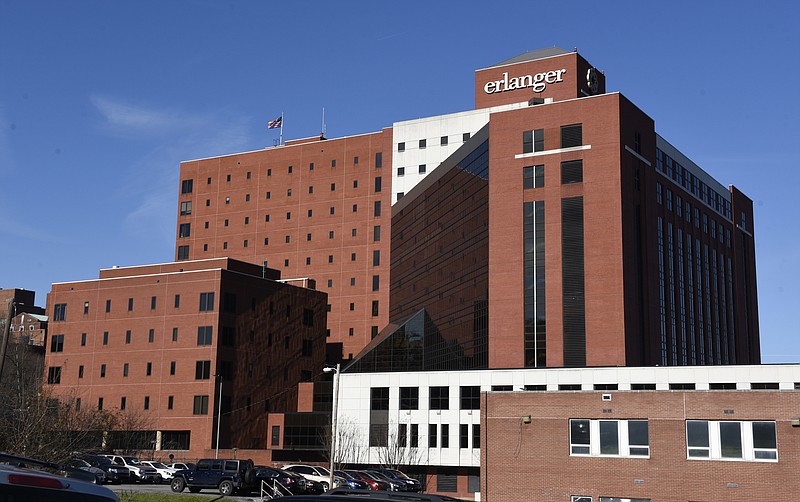Erlanger officials presented a 2016-17 budget that predicts revenues will exceed expenses by about $15 million, but warned that state sources of funding are not confirmed and federal funding from Medicare is being reduced.
As a public hospital, Erlanger does not report a profit, but does work to have revenues exceed expenses, to provide funds for capital expenses.
Chief Financial Officer Britt Tabor gave the hospital board of trustees' budget committee their first look at the projected budget Monday evening. The full board will get a more detailed look later this month and the board will vote on the proposal later in June.
Tabor warned the board members that the hospital is in the middle of two major projects that will have a big impact on the budget - the opening of an expanded Erlanger East hospital and a $33 million capital expense for a new computerized hospital records system, called EPIC.
"What you're going to see is a huge financial investment this year, and there are financial consequences for that this year," said Erlanger CEO Kevin Spiegel.
Overall, Erlanger predicts its net revenue from patients will be $803 million, up 8.3 percent from $741 million this year, plus another $12.6 million from other revenue sources. Expenses will be approximately $802 million, including $421 million in salaries and benefits, up 10.4 percent from this year.
Erlanger should employ 4,853 people next year, compared to 4,481 this year, with an average salary of $33.30 per hour.
The impact of Erlanger East and EPIC was evident throughout much of the budget. For example, because East will have fewer expensive emergency patients, the cost per patient will drop from $8,498 in 2015-16 to $8,143 for the fiscal year starting July 1, Tabor said.
But he added that because of the EPIC software rollout, productivity will decline, while employees learn to use the new system, increasing the number of employees per hospital bed from 4.74 this year to 5.2 next year. "It would be remiss for us not to say it will impact our productivity, because in 100 percent of the other hospitals that have rolled it out, it has, and that impacts the volume of patients you can see."
Tabor and Spiegel both warned that while continued state funding is expected, Tennessee and U.S. officials are still negotiating the details of a deal, and it may be several weeks before Erlanger has a final budget figure.
Similarly, Tabor showed a chart outlining the predicted continuing reductions in Medicare payments to Erlanger, which add up to $4.5 million this year, he said. Originally, the Medicare cuts were intended to be offset by increases in funding from an expanded state Medicaid program, Tabor said, but Tennessee lawmakers have not approved the expansion.
Erlanger's capital budget proposal is for $44 million, including the $33 million EPIC expense. This year will see the largest capital expense for the software program, Tabor said.
Contact staff writer Steve Johnson at 423-757-6673, sjohnson@timesfreepress.com. Follow on Twitter @stevejohnsonTFP, or on Facebook, www.facebook.com/noogahealth.
